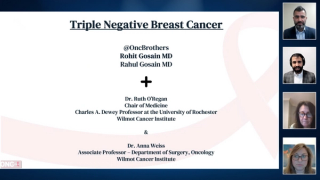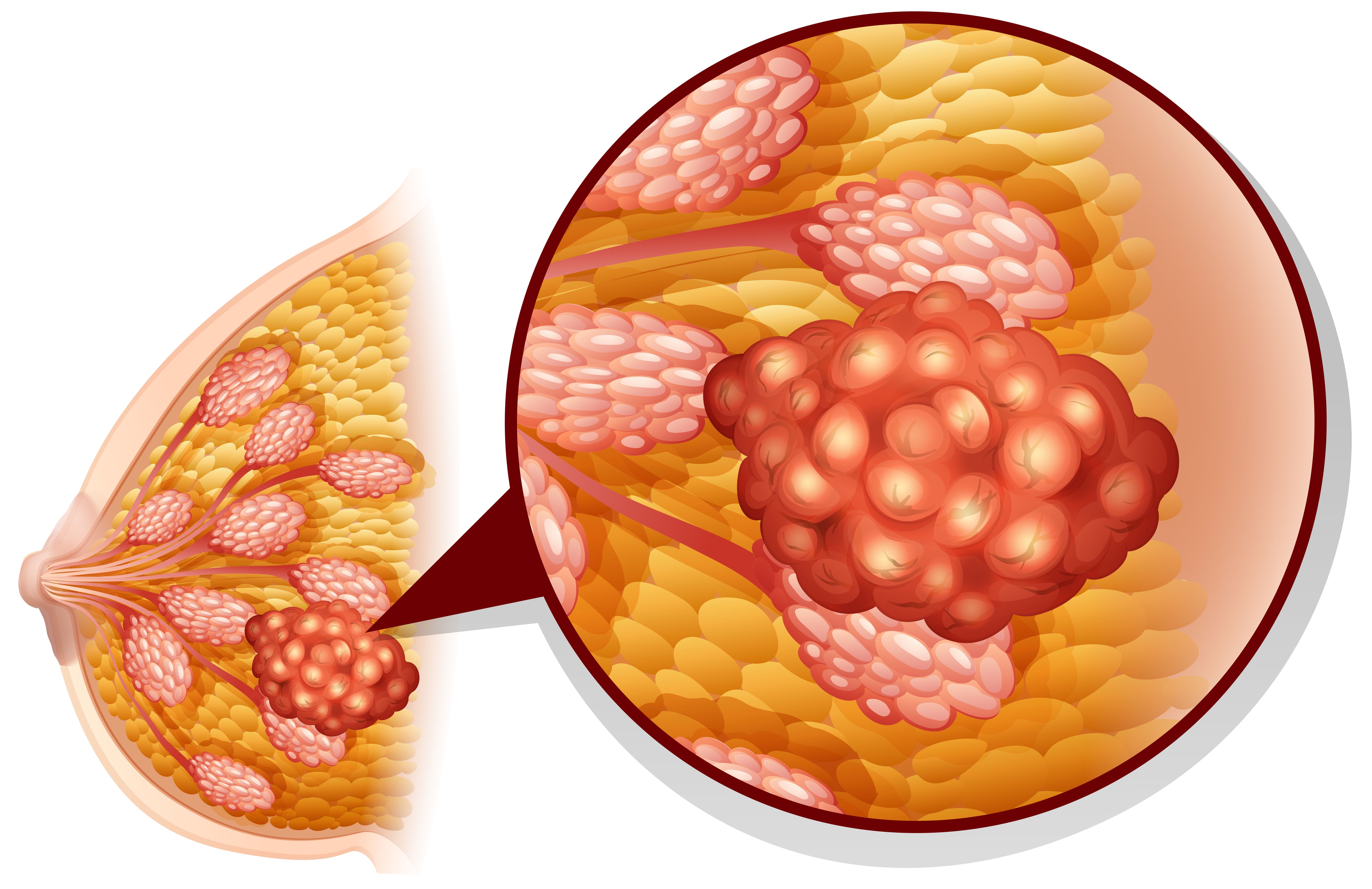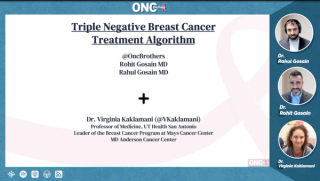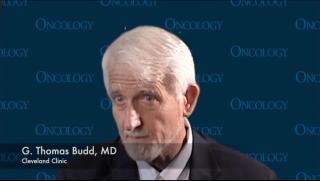
Triple-Negative Breast Cancer
Latest News
Video Series
Latest Videos
Podcasts
CME Content
More News

Roshni Rao, MD, FACS, discussed the use of neoadjuvant chemoimmunotherapy and its complications in the treatment of patients with triple-negative breast cancer.

An increased TIL count in the breast tissue was associated with improved distant recurrence-free survival in patients with triple-negative breast cancer.

The phase 3 IMpassion030 trial did not find a survival benefit when atezolizumab was added to chemotherapy after surgery for patients with triple-negative breast cancer.

The final overall survival analysis of trilaciclib plus chemotherapy in patients with metastatic triple-negative breast cancer as part of the PRESERVE 2 trial will take place in the third quarter of 2024.

Lower risk of disease progression following treatment with atezolizumab and carboplatin for metastatic triple-negative breast cancer appears to be associated with increases in tumor infiltrating lymphocytes and tumor mutational burden.

Data from the phase 2 KEYLYNK-009 study indicate a lower rate of treatment-related adverse effects with pembrolizumab plus olaparib compared with pembrolizumab plus chemotherapy in those with triple-negative breast cancer.

Event-free survival benefits with pembrolizumab plus chemotherapy in the phase 3 KEYNOTE-522 trial appear to be consistent in triple-negative breast cancer across subgroups based on nodal status, tumor size, and PD-L1 status.

Findings suggest that sensitive circulating tumor DNA analysis may be a valuable tool for guiding neoadjuvant treatment decision-making in early-stage triple-negative breast cancer.

Despite seeming to elicit more pathological complete responses in patients with hormone receptor–positive, HER2-negative triple-negative breast cancer receiving neoadjuvant chemotherapy, diet and exercise did not affect relative dose intensity.

Supporting data for the supplemental new drug application for toripalimab plus chemotherapy in recurrent metastatic triple-negative breast cancer come from the phase 3 TORCHLIGHT study.

During a live Tweet Chat, Hope S. Rugo, MD, and Paolo Tarantino, MD, reviewed a patient case and discussed current standard of care for those with metastatic triple-negative breast cancer.

Expert oncologists review the clinical data supporting the use of sacituzumab govitecan in metastatic triple-negative breast cancer.

Cisplatin plus veliparib appears to improve progression-free survival among patients with BRCA-like metastatic triple-negative breast cancer, but not in those with non–BRCA-like metastatic breast cancer.

Patients with HER2-positive breast cancer and triple-negative breast cancer may not require breast surgery if a pathological complete response can be identified using image-guided vacuum core biopsy following neoadjuvant systemic therapy.

Initial findings from a phase 2 trial showed trilaciclib given before sacituzumab govitecan-hziy lessened the severity of adverse effects in patients with unresectable locally advanced or metastatic triple-negative breast cancer.

Japan’s Ministry of Health, Labor and Welfare approved pembrolizumab for use in 4 indications, including high-risk, early-stage triple-negative breast cancer, stage IIB or IIC melanoma, adjuvant renal cell carcinoma, and recurrent/metastatic cervical cancer.

Health-related quality of life data from the phase 2 KEYNOTE-522 trial did not show ill effects of pembrolizumab vs placebo in patients with triple-negative breast cancer.

Results from the phase 2 SYNERGY trial suggest little or no benefit of adding oleclumab to durvalumab and chemotherapy for advanced frontline triple-negative breast cancer.

Aditya Bardia, MD, MPH, discussed final results from the phase 3 ASCENT study evaluating sacituzumab govitecan vs physician’s choice of single-agent chemotherapy for patients with relapsed or refractory metastatic triple-negative breast cancer.

European patients with locally advanced or early-stage triple-negative breast cancer at high risk of recurrence can now receive treatment with neoadjuvant pembrolizumab and chemotherapy, as well as pembrolizumab monotherapy post surgery following its approval by the European Commission.

Axillary ultrasound and biopsy appear to be an effective strategy to identify nodal disease in patients with early-stage triple-negative breast cancer.

The study from Cancer Discovery examined a 3-case autopsy series, finding associations between TROP2 absence and limited clinical responses to sacituzumab govitecan for patients with metastatic triple-negative breast cancer.

Circulating tumor DNA should be utilized early to help detect relapse in patients with triple-negative breast cancer.

Patients with early triple-negative breast cancer across prespecified subgroups who were given neoadjuvant pembrolizumab plus chemotherapy followed by adjuvant single-agent pembrolizumab in a phase 3 trial saw an improvement in event-free survival.

Positive response data were seen when patients with advanced or metastatic triple-negative breast cancer were treated with datopotamab deruxtecan.














































